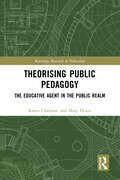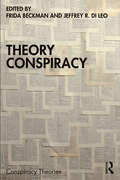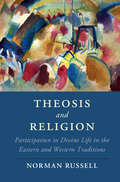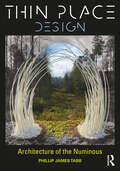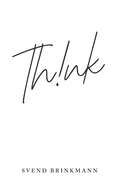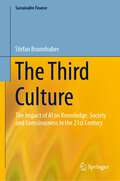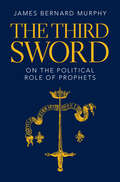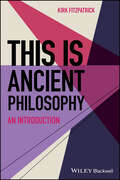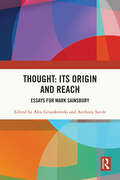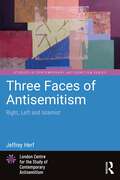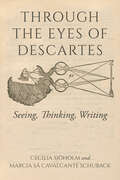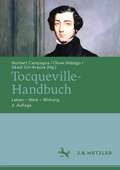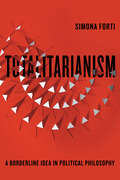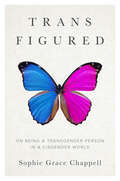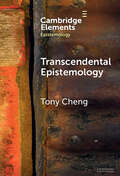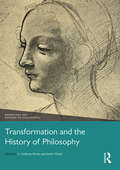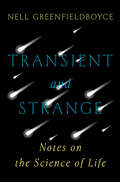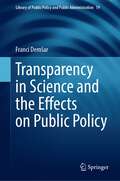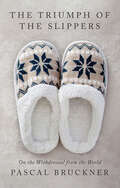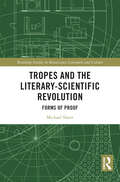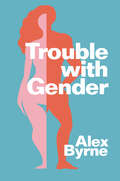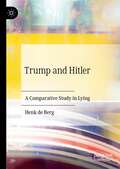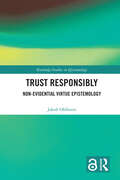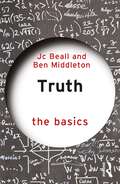- Table View
- List View
Theorising Public Pedagogy: The Educative Agent in the Public Realm (Routledge Research in Education)
by Karen Charman Mary DixonDrawing on the ideas of Hannah Arendt and Michel Foucault, this book extends the theoretical understanding of public pedagogy and brings into sharp focus the elements that constitute the public realm; the site of public pedagogy. Karen Charman and Mary Dixon offer a new theorisation of the public, a term at the heart of debate in the field, heightened in this post-truth era by the COVID-19 pandemic, the rise of fake news and the technological reconfigurations of public life. The new theorization addresses the ‘public’, ‘pedagogy’ and their confluence in ‘public pedagogy’. The book explores a deep engagement with the architecture and dynamics of pedagogy and argues for the positioning of pedagogy with the public. The authors contribute to a theorisation that re-considers the individual and their capacity for agency within the public realm. The book presents knowledge and pedagogical encounters as key elements of public pedagogy and most significantly, the educative agent as a means of critically rethinking social life and learning in public spaces. Presenting an innovative theoretical approach, this book will be of interest to academics in the fields of public and critical pedagogy and postgraduate students in education, cultural studies and politics.
Theory Conspiracy (Conspiracy Theories)
by Frida Beckman Di Leo, Jeffrey R.Theory Conspiracy provides a state-of-the-art collection that takes stage on the meeting and/or battlegrounds between conspiracy theory and theory-asconspiracy. By deliberately scrambling the syntax—conspiracy theory cum theory conspiracy—it seeks to open a set of reflections on the articulation between theory and conspiracy that addresses how conspiracy might rattle the sense of theory as such. In this sense, the volume also inevitably stumbles on the recent debates on postcritique. The suspicion that our ways of reading in the humanities have been far too suspicious, if not paranoid, has gained considerable attention in a humanities continuously questioned as superfluous at best and leftist and dangerous at worst. The chapters in this volume all approach this problematic from different angles. It features clear engaging writing by a set of contributors who have published extensively on questions of paranoia, conspiracy theory, and/or the state of theory today. This collection will appeal to readers interested in conspiracy theories, critical theory, and the future of humanities.
Theosis and Religion: Participation in Divine Life in the Eastern and Western Traditions (Cambridge Studies in Religion, Philosophy, and Society)
by null Norman RussellTheosis, originally a Greek term for Christian divinisation or deification, has become a vogue word in modern theology. Although recent publications have explored its meaning in a selection of different contexts, this is the first book to offer a coherent narrative of how the concept of theosis developed in both its Eastern and Western versions. Norman Russell shows how the role of Dionysius the Areopagite was pivotal, not only in Byzantium but also in the late mediaeval West, where it strengthened the turn towards an individualistic interiority. Russell also relates theosis to changing concepts of religion in the modern age. He investigates the Russian version of theosis, introduced in the West by Russian members the Paris School after the 1917 Revolution. Since then, theosis has undergone additional development through the addition of esoteric elements which have since passed into the mainstream of all theological traditions and even into popular spirituality.
Thin Place Design: Architecture of the Numinous
by Phillip James TabbWhat makes the places we inhabit extraordinary? Why are some urban spaces more vital and restorative? Wonderful landscapes, inspiring works of architecture and urban design, and the numinous experiences that accompany them have been an integral dimension of our culture. Up-lifting spaces, dramatic use of natural light, harmonic proportional geometry, magical landscapes, historic sites and vital city centers create special, even sacred moments in architecture and planning. This quality of experience is often seen as an aesthetic purpose intended to inspire, ennoble, ensoul and spiritually renew. Architecture and urban spaces, functioning in this way, are considered to be thin places.
Think: In Defence of a Thoughtful Life
by Svend BrinkmannA defining feature of being human is our ability to think. We refer to ourselves, after all, as Homo sapiens. But in a world where experiencing and achieving as much as possible is the number one preoccupation, there is little room for reflection. Technology is also making everything easier, eroding the need for us to think at all. Of course deep, critical thinking can be difficult, sometimes painful, and it takes time. But it is fundamental to our well-being. In this new book, bestselling philosopher and psychologist Svend Brinkmann argues for a return to the thoughtful life, where we learn to think well, to think deeply, to lose ourselves in reverie and tune in to our inner voice. By spending time in our thoughts and letting them wander freely, we will discover that thinking is one of the most enriching things we can do in life – and one of the most human, too.
The Third Culture: The Impact of AI on Knowledge, Society and Consciousness in the 21st Century (Sustainable Finance)
by Stefan BrunnhuberWe are currently witnessing the emergence of a ‘third culture’, driven by unprecedented developments that are changing the playing field. These include advances in AI, big data analysis and robotics. The traditional ‘two cultures’ view (S. P. Snow) distinguishes between the sciences and the humanities. The wisdoms these two cultures offer are separated from each other, with little to no interaction or mutual comprehension. However, over the past two decades, and for the first time in human history, a new, third culture has appeared. This new culture, rooted in new technologies, not only pursues its own form of rationality but also supports advances in the original two cultures, deepening and expanding our individual and collective consciousness so that we can see more and do better. It will eventually give rise to new forms of consciousness based not on biochemical signals, but on copper wires and lithium chips. These new machine intelligences will change the world and force us to realise: we are no longer alone. The human species’ position in the twenty-first century will be fundamentally redefined: not as a conductor leading the orchestra, but a single string player within it.
This is Ancient Philosophy: An Introduction (This is Philosophy)
by Kirk FitzpatrickTHIS IS ANCIENT PHILOSOPHY “A masterful introduction to ancient philosophy. Fitzpatrick knows the contemporary scholarship on these authors, so he can shift from summarizing their thought to scrutinizing individual arguments. Meanwhile the writing remains so accessible that a reader might not notice how much he covers. The prose is precise but relaxed, with details that enrich the texture: the Pythagoreans’ harmonies, the Stoic Horned Argument, Antisthenes’ daily walk to Socrates. Students and instructors alike will benefit.” —Nickolas Pappas, Professor at City College of New York (CUNY) This Is Ancient Philosophy is a fascinating introduction to the major philosophers and foundational concepts of classical antiquity. Assuming no prior knowledge, the book uses an intuitive, readable narrative style as it examines the ideas, influences, and interconnections of philosophers such as Socrates, the Sophists, Plato, and Aristotle, as well as philosophical schools of thought including Cynicism, Epicureanism, Stoicism, and Skepticism. Divided into three parts, the book opens with an overview of early Greek philosophy, describing the turn from mythological thinking to philosophical analysis. The second part focuses on the distinctions between the subjects of philosophy in both the Golden Age and today, followed by a survey of the Hellenistic period and a discussion of the relation between fate and freedom of action. Throughout, readers are aided by a wealth of instructive and engaging charts, grids, figures, and a detailed map illustrating the chronological development of philosophy, from Asia Minor to southern Italy and Athens. Part of the popular This Is Philosophy series, This Is Ancient Philosophy is an excellent text for students of philosophy, both introductory and advanced, and general readers with interest in the philosophy of the classical era.
Thought: Essays for Mark Sainsbury
by Alex Grzankowski Anthony SavileThe work of Mark Sainsbury has made a significant and challenging contribution to several central areas of philosophy, especially philosophy of language and logic. He has made significant contributions to puzzles concerning the nature of thought and language and pioneered research in the philosophical theory known as fictionalism.In this outstanding volume, 20 contributors engage with Sainsbury’s work but also go beyond it, exploring fundamental problems in the philosophy of language, mind, and logic. Topics covered include propositional thought, intentionality, the mind-body problem, singular thoughts, the individuation of concepts, nominalisation, logical form, non-existent objects, and vagueness.Thought: Its Origin and Reach will be of interest to professional philosophers and students working in philosophy of mind, language, epistemology, and metaphysics.
Three Faces of Antisemitism: Right, Left and Islamist (Studies in Contemporary Antisemitism)
by Jeffrey HerfThree Faces of Antisemitism examines the three primary forms of antisemitism as they emerged in modern and contemporary Germany, and then in other countries. The chapters draw on the author’s historical scholarship over the years on the form antisemitism assumed on the far right in Weimar and Nazi Germany, in the Communist regime in East Germany, and in the West German radical left, and in Islamist organizations during World War II and the Holocaust, and afterward in the Middle East. The resurgence of antisemitism since the attacks of September 11, 2001, has origins in the ideas, events, and circumstances in Europe and the Middle East in the half century from the 1920s to the 1970s. This book covers the period since 1945 when neo-Nazism was on the fringes of Western and world politics, and the persistence of antisemitism took place primarily when its leftist and Islamist forms combined antisemitism with anti-Zionism in attacks on the state of Israel. The collection includes recent essays of commentary that draw attention to the simultaneous presence of antisemitism’s three faces. While scholarship on the antisemitism of the Nazi regime and the Holocaust remains crucial, the scholarly, intellectual, and political effort to fight antisemitism in our times requires the examination of antisemitism’s leftist and Islamist forms as well. This book will be of interest to scholars researching antisemitism, racism, conspiracy theories, the far right, the far left, and Islamism.
Three Faces of Antisemitism: Right, Left and Islamist (Studies in Contemporary Antisemitism)
by Jeffrey HerfThree Faces of Antisemitism examines the three primary forms of antisemitism as they emerged in modern and contemporary Germany, and then in other countries.The chapters draw on the author’s historical scholarship over the years on the form antisemitism assumed on the far right in Weimar and Nazi Germany, in the Communist regime in East Germany, and in the West German radical left, and in Islamist organizations during World War II and the Holocaust, and afterward in the Middle East. The resurgence of antisemitism since the attacks of September 11, 2001, has origins in the ideas, events, and circumstances in Europe and the Middle East in the half century from the 1920s to the 1970s. This book covers the period since 1945 when neo-Nazism was on the fringes of Western and world politics, and the persistence of antisemitism took place primarily when its leftist and Islamist forms combined antisemitism with anti-Zionism in attacks on the state of Israel. The collection includes recent essays of commentary that draw attention to the simultaneous presence of antisemitism’s three faces. While scholarship on the antisemitism of the Nazi regime and the Holocaust remains crucial, the scholarly, intellectual, and political effort to fight antisemitism in our times requires the examination of antisemitism’s leftist and Islamist forms as well.This book will be of interest to scholars researching antisemitism, racism, conspiracy theories, the far right, the far left, and Islamism.
Through the Eyes of Descartes: Seeing, Thinking, Writing (Studies in Continental Thought)
by Cecilia Sjöholm Marcia Sá Schuback"I shall here present my life," writes Descartes in Discourse on Method, "as in a painting" and my method "as a fable." Through the Eyes of Descartes demonstrates how a Cartesian aesthetics is interwoven in his thought. It brings together a variety of materials: his metaphysical writings and essays in natural philosophy, through to his letters, drawings, and printed images.Cecilia Sjöholm and Marcia Sá Cavalcante Schuback seek to bring Descartes into dialogue with contemporary phenomenology as well as contemporary psychoanalytic thought. They focus on how perception interacts with emotions and thought, and the way in which our gaze is directed toward limit-phenomena of beauty and fascination.In Through the Eyes of Descartes, Cecilia Sjöholm and Marcia Sá Cavalcante Schuback counter the traditional picture of Descartes by presenting his work in an entirely different light: a Descartes of the arts, of sensibility, of inner images, and of imagination.
Tocqueville-Handbuch: Leben – Werk – Wirkung
by Norbert Campagna Oliver Hidalgo Skadi Siiri KrauseDas Handbuch gewährt einen umfassenden Überblick über Tocquevilles Leben, Werk und Wirkung auf dem aktuellen Stand der historischen, philosophischen und sozialwissenschaftlichen Forschung. Dem äußerst facettenreichen, in Deutschland aber nach wie vor unterschätzten Autor widmet dieser Band eine ebenso kompakte wie systematische Darstellung, die auf der Basis eines strukturierten Zugriffs und unter Berücksichtigung aller seiner Schriften verschiedene Aspekte seines Denkens erfasst. Deutschsprachige Leserinnen und Leser können sich schnell und zielführend fundierte Informationen über Tocquevilles Theorien, seine zentralen Begriffe sowie die wichtigsten Einflüsse verschaffen. Zugleich dient das Handbuch als Kompass zur Einordnung von Tocquevilles Analysen in gegenwärtige Debatten und Themengebiete und gibt anschlussfähige Hinweise für die Konzeption von Projekten in Forschung und Lehre.
Totalitarianism: A Borderline Idea in Political Philosophy (Square One: First-Order Questions in the Humanities)
by Simona FortiIn the last decade, we have witnessed the return of one of the most controversial terms in the political lexicon: totalitarianism. What are we talking about when we define a totalitarian political and social situation? When did we start using the word as both adjective and noun? And, what totalitarian ghosts haunt the present? Philosopher Simona Forti seeks to answer these questions by reconstructing not only the genealogy of the concept, but also by clarifying its motives, misunderstandings, and the controversies that have animated its current resurgence. Taking into account political theories and historical discussions, Totalitarianism especially focuses on philosophical reflections, from the question of totalitarian biopolitics to the alleged totalitarian drifts of neoliberalism. The work invites the relentless formulation of a radical question about the democratic age: the possibilities it has opened up, the voids it leaves behind, the mechanisms it activates, and the "voluntary servitude" it produces. Forti argues that totalitarianism cannot be considered an external threat to democracy, but rather as one of the possible answers to those questions posed by modernity which democracies have not been able to solve. Her investigation of the uses and abuses of totalitarianism as one of the fundamental categories of the twentieth and twenty-first centuries promises to provoke much-needed discussion and debate among those in philosophy, politics, ethics, and beyond.
Trans Figured: On Being a Transgender Person in a Cisgender World
by Sophie Grace Chappell‘I was four and three-quarters when I asked my mother if, from now on, I could please go to school as a girl instead of as a boy …’ In this extraordinary new book, renowned philosopher Sophie Grace Chappell combines personal memoir, philosophical reflection, open letters, science fiction writing, and poetry to help us all figure out transgender. What is it really like to be transgender? How can we as a society do better to accept the reality of trans lives and to welcome and include trans adults, trans children, and trans families? How can trans people thrive in a cisgendered world? For too long now, clouds of myth, misinformation, alarmism, and wrong-headed ideology have masked the reality of trans people’s lives. By answering questions like these, this book blows away the clouds and gives us the truth instead. Rich, informative, and deeply moving, Trans Figured will be widely read and celebrated for years to come.
Transcendental Epistemology (Elements in Epistemology)
by null Tony ChengTranscendental arguments were prominent in Western philosophy, German idealism, phenomenological tradition, and P. F. Strawson's thinking. They have fallen out of fashion because of their associations with transcendental idealism and verificationism. They are still invoked by important figures in the analytic tradition even if the very same tradition has cast doubt on such arguments. The nature of transcendental arguments remains unclear: Are they supposed to be deductive? Are they synthetic or analytic? If they are a priori, how are they supposed to be about the empirical world? What are their relations to necessity, conceivability, and essence? This Element takes up the challenge of elucidating the nature of transcendental arguments, embedded in the wider context of transcendental epistemology. It will be argued that the key premise 'transcendental conditional' is synthetic, necessary, and a posteriori.
Transformation and the History of Philosophy (Rewriting the History of Philosophy)
by G. Anthony Bruno Justin VlasitsFrom ancient conceptions of becoming a philosopher to modern discussions of psychedelic drugs, the concept of transformation plays a fascinating part in the history of philosophy. However, until now there has been no sustained exploration of the full extent of its role. Transformation and the History of Philosophy is an outstanding survey of the history, nature, and development of the idea of transformation, from the ancient period to the twentieth century. Comprising twenty-two specially commissioned chapters by an international team of contributors, the volume is divided into four clear parts: Philosophy as Transformative: Ancient China, Greece, India, and Rome Transformation Between the Human and the Divine: Medieval and Early Modern Philosophy Transformation After the Copernican Revolution: Post-Kantian Philosophy Treatises, Pregnancies, Psychedelics, and Epiphanies: Twentieth-Century Philosophy Each of these sections begins with an introduction by the editors. Transformation and the History of Philosophy is essential reading for students and researchers in the history of western and non-western philosophy, ethics, metaphysics, and aesthetics. It will also be extremely useful for those in related disciplines such as religion, sociology, and the history of ideas.
Transient and Strange: Notes on the Science of Life
by Nell GreenfieldboyceAn astonishing debut from the beloved NPR science correspondent: intimate essays about the intersection of science and everyday life. In her career as a science reporter, Nell Greenfieldboyce has reported from inside a space shuttle, the bottom of a coal mine, and the control room of a particle collider; she’s presented news on the color of dinosaur eggs, ice worms that live on mountaintop glaciers, and signs of life on Venus. In this, her debut book, she delivers a wholly original collection of powerful, emotionally raw, and unforgettable personal essays that probe the places where science touches our lives most intimately. Expertly weaving her own experiences of motherhood and marriage with an almost devotional attention to the natural world, Greenfieldboyce grapples with the weighty dualities of life: birth and death, constancy and impermanence, memory and doubt, love and aging. She looks for a connection to the universe by embarking on a search for the otherworldly glint of a micrometeorite in the dust, consults meteorologists and storm chasers on the eerie power of tornadoes to soothe her children’s anxieties, and processes her adolescent oblivion through the startling discovery of black holes. Inspired throughout by Walt Whitman’s invocation to the “transient and strange,” she remains attuned to the wildest workings of our world, reflecting on the incredible leap of the humble flea or the echoing truth of a fetal heartbeat. A beautiful blend of explanatory science, original reporting, and personal experience, Transient and Strange captures the ache of ordinary life, offering resonant insights into both the world around us and the worlds within us.
Transparency in Science and the Effects on Public Policy (Library of Public Policy and Public Administration #19)
by Franci DemšarThis book argues that, in the development of science, three principles have been used; transparency of results; transparency of procedures; financial transparency. Though the topic of transparency has been researched from various angles by many academics, none have made a comparison between the development of science in the last 350 years and the aforementioned principles. The author uniquely explains how these elements contributed to the rapid development of science and consequently that of technology and human wellbeing and suggests legislation for ensuring transparency in the public sector. In addition, this book provides numerous examples of successful new ways of using these principles in other activities in the public sector as well as possibilities of including the transparency principles from science publishing into general and internet media.
The Triumph of the Slippers: On the Withdrawal from the World
by Pascal BrucknerSince the beginning of the 21st century, global warming, terrorism, the pandemic and now the war in Ukraine have created a widespread feeling that the world is an increasingly dangerous place. In response to this situation, it is understandable that many people are inclined to retreat to the safety of their home – the last refuge and safeguard against the savagery of the outside world. But the home is not just a shelter: it is a space that supplants and replaces the world, a wired cocoon that gradually renders any journey to the outside world superfluous. From our couch, we can enjoy remotely the pleasures once offered by the cinema, the theatre and the café. Everything, from food to love to art, can be delivered to your door. Armed with a smartphone and a Netflix account, why would anyone risk life and limb to venture out to the cinema? Compulsory confinement, the nightmare of the pandemic years, seems to have been replaced by voluntary self-confinement. Fleeing from the cities, working remotely, relinquishing travel and tourism, we risk becoming reclusive creatures that cower at the slightest tremor. In this witty and spirited book, Pascal Bruckner takes aim at today’s voluntary seclusionism and the self-inflicted atrophy that comes with it, tracing its philosophical contours and historical roots. It is no longer the tyranny of lockdowns that threatens us but rather the tyranny of the sofa: will the slipper and the dressing gown be the new symbols of tomorrow's world?
Tropes and the Literary-Scientific Revolution: Forms of Proof (Routledge Studies in Renaissance Literature and Culture)
by Michael SlaterTropes and the Literary-Scientific Revolution: Forms of Proof argues that the rise of mechanical science in the seventeenth century had a profound impact on both language and literature. To the extent that new ideas about things were accompanied by new attitudes toward words, what we commonly regard as the “scientific revolution” inevitably bore literary dimensions as well. Literary tropes and forms underwent tremendous reassessment in the seventeenth century, and early modern science was shaped just as powerfully by contest over the place of literary figures, from personification and metaphor to anamorphosis and allegory. In their rejection of teleological explanations of natural motion, for instance, early modern philosophers often disputed the value of personification, a figural projection of interiority onto what was becoming increasingly a mechanical world. And allegory—a dominant mode of literature from the late Middle Ages until well into the Renaissance—became “the vice of those times,” as Thomas Rymer described it in 1674. This book shows that its acute devaluation was possible only in conjunction with a distinctively modern physics. Analyzing writings by Sidney, Shakespeare, Bacon, Jonson, Brahe, Kepler, Galileo, Hobbes, Descartes, and more, it asserts that the scientific revolution was a literary phenomenon, just as the literary revolution was also a scientific one.
Trouble With Gender: Sex Facts, Gender Fictions
by Alex ByrneSex used to rule. Now gender identity is on the throne. Sex survives as a cheap imitation of its former self: assigned at birth, on a spectrum, socially constructed, and definitely not binary. Apparently quite a few of us fall outside the categories ‘male’ and ‘female’. But gender identity is said to be universal – we all have one. Humanity used to be cleaved into two sexes, whereas now the crucial division depends on whether our gender identity aligns with our body. If it does, we are cisgender; if it does not, we are transgender. The dethroning of sex has meant the threat of execution for formerly noble words such as ‘woman’ and ‘man’. In this provocative, bold, and humane book, the philosopher Alex Byrne pushes back against the new gender revolution. Drawing on evidence from biology, psychology, anthropology and sexology, Byrne exposes the flaws in the revolutionary manifesto. The book applies the tools of philosophy, accessibly and with flair, to gender, sex, transsexuality, patriarchy, our many identities, and our true or authentic selves. The topics of Trouble with Gender are relevant to us all. This is a book for anyone who has wondered ‘Is sex binary?’, ‘Why are men and women different?’, ‘What is a woman?’ or, simply, ‘Where can I go to know more about these controversies?’ Revolutions devour their own children, and the gender revolution is no exception. Trouble with Gender joins the forefront of the counter-revolution, restoring sex to its rightful place, at the centre of what it means to be human.
Trump and Hitler: A Comparative Study in Lying
by Henk de BergThis book compares Trump and Hitler as political performance artists. It explores their populist self-staging and rhetorical strategies and explains how they connected with their respective audiences. It also analyses the two men’s character, work ethic, and management style. In addition, the book addresses seemingly peripheral issues like the reasons behind Hitler’s toothbrush moustache and Trump’s hairstyle. By demystifying Hitler and Trump, the author throws new light on both of them.
Trust Responsibly: Non-Evidential Virtue Epistemology (Routledge Studies in Epistemology)
by Jakob OhlhorstThis book offers a defence of Wrightean epistemic entitlement, one of the most prominent approaches to hinge epistemology. It also systematically explores the connections between virtue epistemology and hinge epistemology. According to hinge epistemology, any human belief set is built within and upon a framework of pre-evidential propositions – hinges – that cannot be justified. Epistemic entitlement argues that we are entitled to trust our hinges. But there remains a problem. Entitlement is inherently unconstrained and arbitrary: We can be entitled to any hinge proposition under the right circumstances. In this book, the author argues that we need a non-arbitrariness clause that protects entitlement from defeat. This clause, he argues, is to require epistemic virtue. Virtuous cognitive dispositions provide the non-arbitrariness clause that protects entitlement from defeat. The epistemic character of the agent who holds a particular set of hinges tells us something about the hinges’ epistemic status. Conversely, epistemic virtues are cognitive dispositions and capacities that rely on hinge propositions – without trusting in some hinges, we would be unable to exercise our virtues. Trust Responsibly will appeal to scholars and advanced students working on epistemology, Wittgenstein, and virtues.
Truth: The Basics (The Basics)
by Jc Beall Ben MiddletonTruth: The Basics is a concise and engaging introduction to philosophical theories about the nature of truth. The two authors – leading philosophers in this field – build the book around a single question: what, if anything, is common to all truths, which makes them true? The book explores five important answers (‘theories’) to the given question: correspondence, semantic, verifiability, transparency, and plurality. For each given theory, the following questions are addressed: • What is the theory’s answer to the central question?• What is the basic motivation behind that answer?• What is a precise argument for that answer?• What are the biggest objections to that answer?• What are a few good resources for understanding more about the theory? An additional chapter provides an extensive introduction to the notorious liar paradox. Truth: The Basics is an ideal starting point for anyone seeking a lively and accessible introduction to the rich and complex philosophical study of truth. Key Features:> Written in a clear and concise fashion.> Clearly explains five major theories of truth for an uninitiated readership of undergraduate students and general readers.> Prepares the reader to tackle more advanced work in truth studies.> Makes connections between truth and other areas of philosophy, including the philosophy of language, semantics, metaphysics, logic and epistemology.> Includes technical appendices for more advanced readers.
